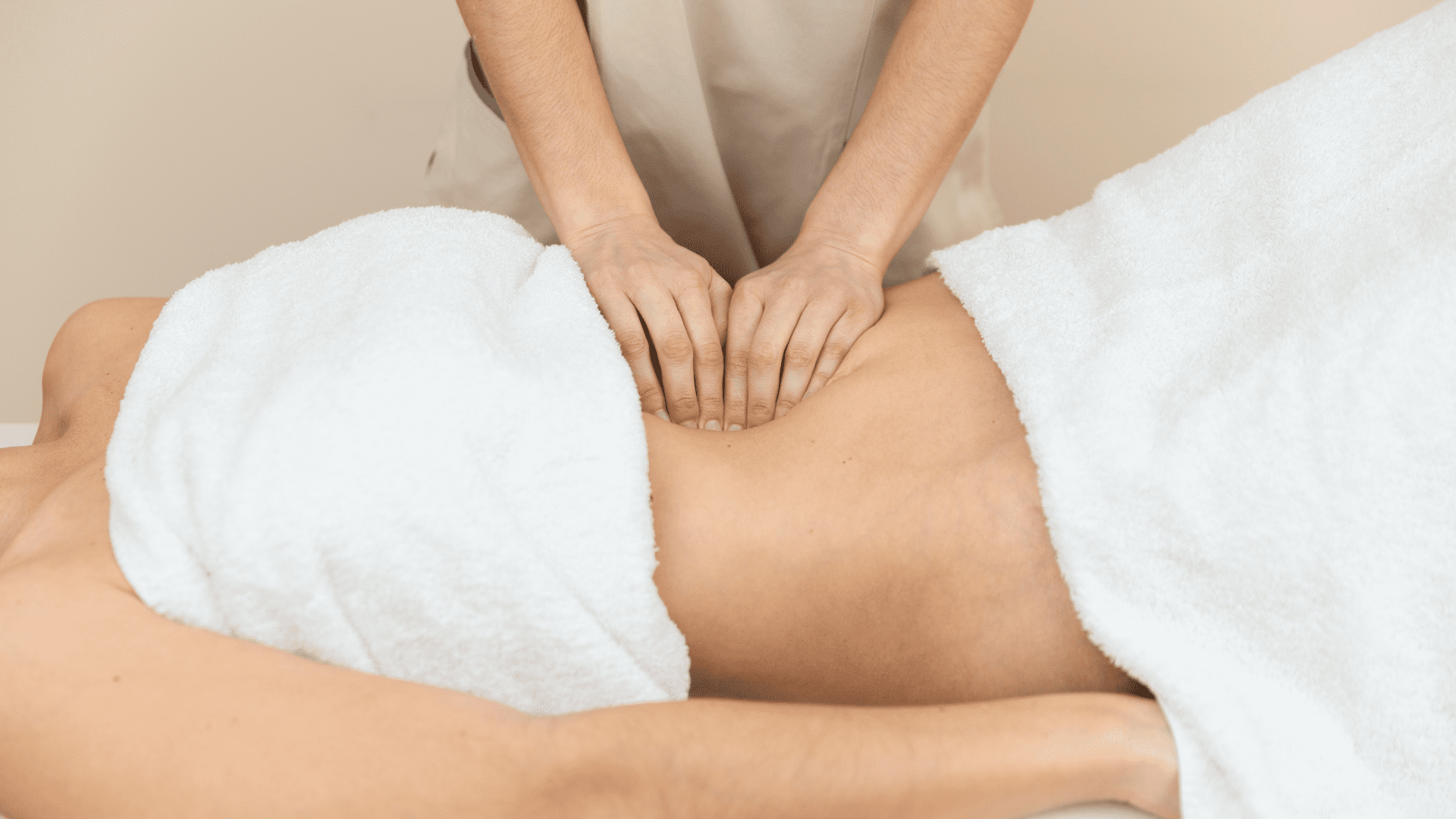When insomnia rears its restless head, it can have many different faces. Traditional Chinese herbal medicine recognizes several different patterns of insomnia, and treats them according to their specificities. Here we walk you through four common types of insomnia and the herbal formulas used to address them. But broadly speaking, Chinese herbal formulas treat insomnia by:
- calming the mind,
- settling the nervous system,
- building the resources that the body needs for deep rest and relaxation.
What is Insomnia?
Insomnia is a very common sleep disorder. People with insomnia—so-called insomniacs—have trouble with one or more of the following:
- falling asleep
- staying asleep
- getting good quality sleep that leaves them feeling rested.
The issues with sleeping are generally categorized as either short-term insomnia or chronic (long-term) insomnia. Short-term insomnia lasts a few days to a few weeks. Long-term insomnia lasts three or more nights per week over the course of three or more months. In the case of long-term insomnia, the disorder cannot be traced to another health problem or medication.
Insomnia Symptoms
People suffering from insomnia report some or all of the following:
- Lying awake for a long time before falling asleep; difficulty falling asleep.
- Sleeping only for short periods, waking up often during the night. Many even report being awake for most of the night.
- Waking up too early in the morning and not being able to get back to sleep.
- Having sleep of poor quality, waking up feeling unrested.
The lack of proper sleep often leads to irritability, fogginess, anxiety or depression.
How to Treat Insomnia
Further on in this article, we discuss the Chinese herbal medicine approach to treating insomnia. Chinese herbal medicine offers a natural, gentle and effective approach to getting better sleep. Outside of Chinese herbal medicine there are a number of treatments and recommendations. A sampling of them are below.
- Practicing good sleep hygiene, including…
- Create an environment conducive to sleep in your bedroom: a cool quiet place without noise and minimal artificial light from electronics.
- Stick to a regular schedule, with a regular bedtime and wake-up time, even on the weekends.
- Avoid nicotine, alcohol and caffeine close to bedtime.
- Get regular physical exercise during the day, preferably at least five hours before bedtime.
- Keep a regular meal schedule and don’t eat too close to bedtime.
- Learn what helps you manage stress and wind down before bed (examples: reading, a hot bath, stretching, soothing music).
- Cognitive Behavioral Therapy (CBT-I) is a common treatment that lasts over the course of 6-8 weeks
- Medication – prescription or over-the-counter. Many pharmaceutical medications have side effects, so do be sure to read about them.
Four Common Types of Insomnia
- Insomnia due to indigestion
- Insomnia due to Blood Deficiency
- Insomnia due to Yin Deficiency
- Insomnia due to Liver Stagnation and Heat
Insomnia due to indigestion
For many people, eating a big meal—especially rich, heavy and spicy foods—too soon before bed can undermine quality of sleep or cause insomnia. Not surprisingly, when the digestive system is very active, the body will be restless and it will be hard to fall asleep. In this case, the best remedy is fairly obvious:
- avoid eating too late
- make your last meal of the day light and avoid spicy foods.

But Chinese Medicine also has a traditional herbal formula for insomnia due to indigestion, called Bao He Wan. It’s used on an “as needed” rather than an ongoing therapeutic basis.
The Bao He Wan formula:
- Shan Zha (Crataegi Fructus) – Hawthorn Fruit
- Shen Qu (Massa Medicata Fermentata) – Medicated Leaven
- Lai Fu Zi (Raphani Semen) – Radish Seed
- Chen Pi (Citri Reticulatae Pericarpium) – Aged Citrus Peel
- Zhi Ban Xia (Pinelliae Rhizoma Preparatum) – Honey Fried Pinellia Rhizome
- Fu Ling (Poria) – Hoelen
- Lian Qiao (Forsythiae Fructus) – Forsythia Fruit
Although this formula is composed of digestives, like radish seed and citrus peel, there are a few herbs in here that also help the heart and calm the mind:
- Shan Zha is a Chinese hawthorn berry which is very beneficial for circulation within the heart.
- Fu Ling is also a heart tonic (tonic meaning something that imparts energy, strength or vitality) with sedating and tranquilizing effects. In Chinese Medicine, the heart is responsible for the mind and mental agitation, and insomnia is typically attributed to the heart.
Insomnia due to Blood Deficiency
Insomnia due to indigestion usually occurs in isolated incidents and doesn’t tend to be a chronic problem. However, there is a diagnosis pattern that links
- digestive discomfort,
- fatigue,
- poor memory and
- insomnia.
In this case, the digestive system is deficient. The result is an inability to properly digest food and produce enough healthy blood. In Chinese medicine, quality of the blood is key. Memory and mental activity is closely linked to the state and quality of the blood. For example, the more blood and nutrients available, and the better the cerebral circulation, the better the memory.
The quality of the blood is also important for the heart and mind to be able to settle into sleep. With insomnia due to blood deficiency, it may be hard to fall or stay asleep, and the cause is typically due to worry or rumination. From the Chinese herbalist’s perspective, the excessive worry is closely linked to a deficiency in the digestive system, and the traditional remedy to this type of insomnia is a formula called Gui Pi Tang.
The Gui Pi Tang formula:
- Ren Shen (Panax Ginseng) – Chinese Ginseng Root
- Huang Qi (Astragali Radix) – Astragalus Root
- Bai Zhu (Atractylodis macrocephalae Rhizoma) – White Atractylodes Root
- Zhi Gan Cao (Radix Glycyrrhizae) – Licorice Root
- Dang Gui (Angelicae Sinensis Radix) – Chinese Angelica Root
- Long Yan Rou (Longan Arillus) – Longan Fruit
- Suan Zao Ren (Zizyphi Spinosae Semen) – Sour Jujube Seed
- Fu Ling (Poria) – Hoelen
- Yuan Zhi (Polygalae Radix) – Polygala Root
- Mu Xiang (Aucklandiae Radix) – Costus Root
- Sheng Jiang (Zingiberis Rhizoma Recens) – Fresh Ginger Root
- Da Zao (Jujubae Fructus) – Chinese Date
As in the previous formula, Gui Pi Tang contains a few digestives in it such as Sheng Jiang , Zhi Gan Cao, and Mu Xiang. We see Fu Ling again in this formula as it both helps digestion and nourishes the spleen and the heart. Other active ingredients in this formula that specifically calm the mind are Long Yan Rou, Suan Zao Ren, and Yuan Zhi. Blood nourishers in the formula include Long Yan Rou fruit and Suan Zao Ren—the seed of the Chinese red date. These ingredients have been widely used in Chinese herbal formulas to:
- reduce time necessary to fall asleep,
- help stay asleep and
- improve sleep quality.
Finally, Yuan Zhi is classically used to dispel brain fog and rumination and help the mind settle into sleep. Research on the active constituents of Yuan Zhi has found that it is nature’s helping hand for the stressed among us. A triterpenoid saponin from the roots, named Yuanzhi-1, shows potent antidepressant effects. Another Yuan Zhi constituent, 3,6′-disinapoyl, has been shown to:
- block stress-induced elevations of plasma cortisol,
- improved hippocampal-dependent learning and memory,
- rescue stress-induced deficits in hippocampal neuronal plasticity and neurogenesis.
Insomnia due to Yin Deficiency
Insomnia due to yin deficiency is the classic case of burnout. The yin is the body’s cooling system. The yin, or yin fluids, refer to the protective lining of all body tissues and nerves—it is a measure of the proper hydration of your body tissues. If yin “runs out,” the body overheats, leading to symptoms like afternoon fever, night sweats, and insomnia.

The kidneys are the body’s natural reserves of cooling fluids and are depleted after long hours of work and standing for long periods. If those fluids run low, the heat can go unchecked and rise, agitating the heart and the mind. This is a recipe for bad sleep, manifesting primarily as difficulty staying asleep and night sweats. The traditional remedy for yin deficiency-type insomnia is the formula Tian Wang Bu Xin Dan.
The Tian Wang Bu Xin Dan formula:
- Sheng Di Huang (Rhemanniae Radix) – Rhemannia Root
- Ren Shen (Panax Ginseng) – Chinese Ginseng Root
- Tian Men Dong (Asparagi Radix) – Asparagus Tuber
- Mai Men Dong (Ophiopogonis Radix) – Ophiopogon Tuber
- Dan Shen (Salviae miltiorrhizae Radix) – Salvia Root
- Fu Ling (Poria) – Hoelen
- Dang Gui (Angelicae Sinensis Radix) – Chinese Angelica Root
- Xuan Shen (Scrophulariae Radix) – Scrophularia
- Yuan Zhi (Polygalae Radix) – Polygala Root
- Wu Wei Zi (Schisandrae Fructus) – Schisandra Fruit
- Bai Zi Ren (Platycladi Semen) – Biota Seed
- Suan Zao Ren (Zizyphi Spinosae Semen) – Sour Jujube Seed
- Jie Geng (Platycodi Radix) – Balloon Flower Root
This formula contains many herbs called yin tonics, such as Sheng Di Huang, Mai Men Dong and Tian Men Dong. These herbs replenish the body’s cooling system and fluids. We also find Xuan Shen, clears what we call ‘deficiency heat.’ In other words, it helps quell the internal fire that happens as a result of the cooling system being out of order.
We see some herbs from the previous formula such as Suan Zao Ren, which nourishes the blood as well as helps astringe fluids to keep the body hydrated, and Yuan Zhi which works on brain fog, calms the mind and has antidepressant properties.
Finally, Wu Wei Zi offers a host of benefits, as it:
- is both sweet and nourishing for the blood, and sour to astringe fluids,
- helps strengthen the kidneys and calm the mind.
- is a dual direction herb, meaning that it can be used both to stimulate or sedate the central nervous system (CNS).
As a nervous system stimulant, it increases reflex responses and improves mental alertness. In this formula, Chinese herbalists harness its inhibitory effects on the CNS. Based on evaluations, this CNS inhibition mechanism may be related to an effect on dopaminergic receptors.
Insomnia due to Liver Stagnation and Heat
The final pattern of insomnia that we will explore is insomnia due to too much stress. In this situation, there will be a constant exposure to stress, which will then cause agitation in the nervous system, leading to heat in both the liver and the heart. Patients exhibit irritability, anxiety and have difficulty falling asleep.
The way that the body adapts and responds to stress is closely related to the way that qi moves through the body, so high stress would be diagnosed as qi stagnation.
In Chinese medicine, the Liver is the primary organ that works on the smooth flow of qi throughout the body, so this type of insomnia is identified as a type of liver qi stagnation. Additionally, irritability is often a sign of heat in the liver, or an agitated nervous system. Finally, anxiety is often attributed to heat in the heart and in this case there is excess heat both in the liver and the heart. The classic remedy for this situation is the formula known as Suan Zao Ren Tang.
The Suan Zao Ren Tang formula:
- Suan Zao Ren (Zizyphi Spinosae Semen) – Sour Jujube Seed
- Fu Ling (Poria) – Hoelen
- Chuan Xiong (Chuanxiong Rhizoma) – Szechuan Lovage Root
- Zhi Mu (Anemarrhenae Rhizoma) – Anemarrhena Root
- Gan Cao (Radix Glycyrrhizae) – Licorice Root
In this formula, Suan Zao Ren is the key ingredient to nourish the Heart and the Liver and give the nervous system more resources to deal with stress and relax into sleep.
Chuan Xiong is traditionally used to invigorate the blood but here plays a key role in pacifying the liver and enhancing cerebral circulation. Zhi Mu is a great herb to clear the heat associated with anxiety and irritability. Fu Ling and Gan Cao are tonic herbs for the Heart.
Chuan Xiong is widely used to regulate blood flow in the body and has an active constituent called Ligustrazine which can:
- dilate cerebral blood vessels,
- reduce vascular resistance,
- significantly increase blood flow to the brain and body, and
- improve microcirculation
Chuan Xiong and other herbs that invigorate circulation are particularly helpful for patients who have trouble falling asleep because of headaches, muscle tension or jaw tension.
This simple Suan Zao Ren Tang formula also combines well with other relaxation and stress relief herbs, both Eastern and Western.
Want better sleep?
If you’re:
- having trouble falling asleep or staying asleep,
- not feeling fully rested upon waking,
- interested in alternatives to pharmaceutical sleep aids, then
… consider Chinese herbal medicine. Our clinic includes a full Chinese herbal pharmacy and our herbalists prepare custom herbal formulations for your particular combination of symptoms and conditions. If you still have questions about Chinese herbal medicine or our herbal consults, you can contact us give us or give us a call at (202) 297-7404.







